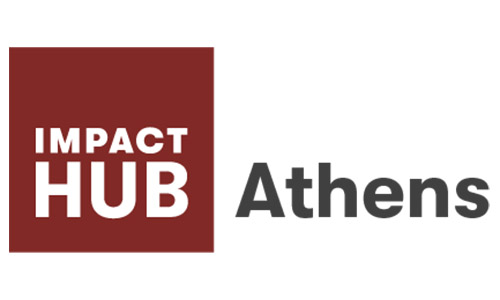In recent months, Impact Hub Athens, in collaboration with the University of the Aegean and the University of Cyprus, has been actively engaged in addressing the unique challenges faced by individuals with print disabilities. This collaboration, a part of the HOMER project – “Cross-border network promoting entrepreneurship for print-disabled individuals using smart access tools to libraries,” has not only identified the needs and challenges but has also played a vital role in creating a supportive learning environment for entrepreneurship.
Understanding Challenges and Advantages
Venturing into entrepreneurship brings various challenges for individuals with disabilities and chronic illnesses. Accessibility barriers, discrimination, and the lack of accommodation in work environments hinder traditional employment opportunities. Simultaneously, there are substantial expenses related to disabilities, limited financial access, and reductions in disability benefits upon employment.
Entrepreneurship, however, offers a unique pathway to integration into the job market. It allows individuals to showcase their abilities, align business goals with personal skills, and provides flexible work conditions accommodating disabilities.
Policy Proposals for Empowerment
Fostering a Supportive and Inclusive Entrepreneurial Culture
- Changing the narrative around entrepreneurship, understanding social and cultural barriers, and investing in inclusive entrepreneurship education are crucial.
- Making educational programs universally accessible and promoting diverse role models are essential aspects.
Entrepreneurial Skills and Support
- Emphasizing education in social, digital, and entrepreneurial skills.
- Designing adaptable educational tools at different business stages and ensuring accessibility in training programs are emphasized.
Access to Financial Opportunities
- Encouraging awareness about various financial tools, educating entrepreneurs with disabilities, and ensuring universal accessibility to banking services are key components.
- Promoting equal financial access and increasing financial literacy among underrepresented communities are vital.
Networks
- Creating networks that involve mentorship, empowerment, and information sharing among disabled and non-disabled entrepreneurs.
- Highlighting the need for public networking events and specialized professional networks to bridge information gaps and provide accessible resources.
Institutional Regulations
- Addressing the bureaucratic maze in Greece that hinders understanding and compliance with tax and regulatory frameworks.
- Proposing actions such as suspending disability benefits revocation upon entrepreneurial activity, grants for necessary technical equipment, tax incentives, and positive discrimination in employment.
Comprehensive accessibility in entrepreneurial processes and incentives is not just a moral obligation; it unlocks developmental prospects by identifying talents, opening new markets, and enhancing workplace diversity. Immediate actions are needed, including inclusive education, digital registers for accessible services, content accessibility, and financing programs to bring about inclusive change.
The collaborative efforts of various organizations and participants within the HOMER project have been instrumental in highlighting these policy proposals for an inclusive entrepreneurial landscape. Incorporating success stories or case studies would further exemplify the impact of entrepreneurship on individuals with print disabilities, showcasing their remarkable journey towards empowerment. As a part of our broader mission, this initiative aligns with our dedication to supporting underrepresented groups in entrepreneurship, and with the goals of the Better Incubation initiative – a collaboration between three partner networks, EBN, IHUB and EVPA, that work together towards a sustainable “better incubation ecosystem”. You can find more information and insights here.



